It is idle to point out to the perverted man the horror of his perversion: while the fierce fit is on, that horror is the very spice of his craving. It is ugliness itself that becomes, in the end, the goal of his lechery; beauty has long since grown too weak a stimulant. (265)
The chapter is merely the tightening of the screw, everything is ramping up. The drama is on its way to 11, so to speak.
 SUMMARY
SUMMARY
The hunt – Stone debriefs the Deputy Director – A simple medium – The horseman – Mark under arrest – Conviction – Objectivity – The cat and the bear – Two visitors – First contact – Attack on Mark
DISCUSSION
Sexuality and Marriage
Overshadowing this chapter is Lewis’s idea that women ought not be army combatants. This was not a new idea that Lewis was putting forth. It was and is a very old idea that Lewis has re-asserted. It is present in his Chronicles of Narnia as well. It is only explicitly hinted at in this chapter, though it is demonstrated throughout. At one point Mrs. Denniston remarks on her desire to be “out in it” (259) with her husband and Dimble and Jane. Though she was not allowed to be on the front lines – as it were. Jane, however, was required; there was really no other way since she alone had the “vision” that gave them their clue.
Then later in the chapter Mark has finally entered the fight against Belbury “with Jane and with all she symbolised. Indeed, it was he who was in the front line: Jane was almost a non-combatant…” (265). I’m not sure what to say about the idea that Jane was “almost a non-combatant.” She’s out traipsing through the mud, looking for Merlin. And she is in danger. Is this sloppy writing on Lewis’s part or is it merely Mark’s limited viewpoint? I’m inclined to think it the latter.
Recall that Lewis was on the front line during the first World War. He very well knew the horrors of combat.
There is a short discussion on lust and other sin on 265 which I will revisit when I write about temptation below. There is also a strange and mercifully short exposition on animal love/friendship and how it compares to human on 258. I’ll just let that be. I think the book could do without it. Did this Lewis guy not have an editor?
Mark
Mark seems to have finally taken the step. He has at least aligned himself against Belbury. Now, that doesn’t automatically put him in good with Maleldil. (See McPhee for evidence.) But a man like Mark would not oppose Maleldil on McPhee’s principles. With Jane (taking similar steps) on his side, it seems turning from Belbury is a victory.
Still there are temptations to turn back. “An attack,” as it is described. The macrobes, the fallen eldils, are certainly playing a role. Frank Peretti might call this “spiritual warfare.”
Mark finally thinks he has found the innermost circle…
For here, surely at last (so his desire whispered to him) was the true inner circle of all, the circle whose center was outside the human race – the ultimate secret, the supreme power, the last initiation. The fact that it was almost completely horrible did not in the least diminish its attraction. (257)
… and it seems he rejects it. He wavers later in the chapter, but again rejects Belbury. But it stumbles him. It makes him wonder how much he can hold out against.
Temptation
I think Lewis is good on temptation. I think his Screwtape Letters prove that. Not my favorite of his work. A great conceit, to be sure, but it drags on so, like most modern cinematic comedies. Still, Lewis seems to have great insight into how people think and what brings them down. Even when his works may display a striking ugliness – and even falseness – on the nature of God, they often are quite insightful on the nature of man. (Til We Have Faces would be a prime example.)
The lead-quote of this article (above) addresses temptation and the truly dark heart of man. People love darkness, love sin, love twisted wickedness. That is where much of our temptation comes from. Temptation can be from without and is no less temptation but so often it is birthed from our desire for the unholy.
He uses lust as an example of temptation, which I think is fine – and probably the easiest – but he doesn’t limit temptation to lust, to some type of misplaced or twisted sexual desire.
What Lewis says above is so obvious and yet very easily missed until its pointed out. We sin because we love sin and as long as we see the ugly thing as desirable it does little good to point out its ugliness. So, its ugly, and its what we want. Its true with sexual sin but also very true with pride and self-aggrandizement. Of course I want to be seen as important, as right, as true and good, because that’s exactly what I am. Except we aren’t. Only Christ is any of those things, and guess what – he’s not busying himself pointing that out. A striving for equality, as Lewis has already shown, is not his goal.
God’s Nature.
This irked me a little and maybe wrongly. Of course I think I’m right, but I’d be wise to listen to others.
God is often thought of as vindictive and harsh in the Old Testament but loving and gentle and forgiving in the New Testament. I disagree. I think he is very gentle in the Old Testament. Why did he let Adam and Eve live and proclaim that the serpent would one day be crushed? How was that harsh and vindictive. I wouldn’t have done it. I would have created a hell for those two and left them there. I thank God that he is merciful, longsuffering and forgiving. He’s not like me. I pray that I would become more like him. The whole idea that God’s nature changed is false and it bothers me that people portray him in that way. I don’t think Lewis is above error – not even close. And I think his view of God as portrayed in the OT is slanted in the way I described it above. Some of his writings in Reflections on the Psalms are very problematic, at least. Which brings me to this passage from THS:
“Do you know,” said Ivy in a low voice, “that’s a thing I don’t quite understand. [The eldils/angels] are so eerie… But I don’t feel like that about God. But He ought to be worse, if you see what I mean.”
“He was, once,” said the Director. “You are quite right about the powers. Angels in general are not good company for men in general, even when they are good angels and good men. It’s all in St. Paul. But as for Maleldil Himself, all that has changed: it was changed by what happened in Bethlehem.” (259)
Just a few observations here:
Regarding Ivy’s observation that God “ought to be worse.” I assume she means because God is Holy, like really Holy, like He is the source of Holiness. If the angels are holy, its because He made them that way. Habakkuk tells us he’s too pure to look at sin. Isaiah saw God in a vision and pronounced himself “undone.” Samson’s father thought he would die, as sure as the sun rises, because he had seen the angel of the Lord. And he was not alone in scripture in thinking like this. And consider Uzzah. Holiness, man. Holiness.
Ransom’s words seem to say that God’s nature changed. This is something I cannot accept. God’s nature did not change at the time of the Incarnation. But our understanding of Him did change. We saw Him more fully than we previously had. Before that, we had seen Him in His creation, in His Law and in His direct messages through the prophets. These are incredible revelations of God. But they are incomplete. And without seeing Him in Christ Incarnate, we do not see him completely. And even now I would not say that we see him completely, but as completely as our infinite minds can see in the Infinite God.
It’s hard for me to know exactly how Lewis wanted us to take this. And I think it likely he wanted us to take it with a little bit of ambiguity. Because he was great with words. So he might be saying something problematic here, or maybe he’s being very helpful. Regardless of his intent, we can be helped by stopping to think about the Incarnation and how much of a gift it truly is. How much does he teach us in that way! And do we deserve it? Certainly not. I would venture to say that if it weren’t for the Incarnation being part of His plan (and how does God experience time?) then He never would have promised to crush the serpent.
Lastly I just love how he refers to the Incarnation: “what happened in Bethlehem.” Its the most monumental moment of all human history: Oh, you remember that one time, that thing that happened in Bethlehem? Yeah that. Pretty cool, huh?
Orion
Lewis says a lot about the planets and draws from pagan thought. I’ve mentioned that before. I don’t think this is on that level, but I liked the way he threw Orion in. “It had turned into a fine night: Orion dominated the whole sky” (247). They were hunting after all.
And this last quote. Any quote that mentions bacon is OK with me. And it was so funny.
“Whoever heard of trying to make bacon out of a bear?”

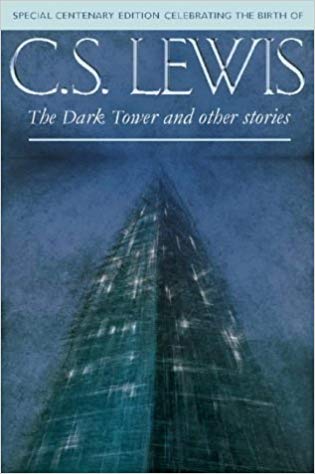 I reviewed The Dark Tower on my science fiction blog. It can be found
I reviewed The Dark Tower on my science fiction blog. It can be found  SUMMARY
SUMMARY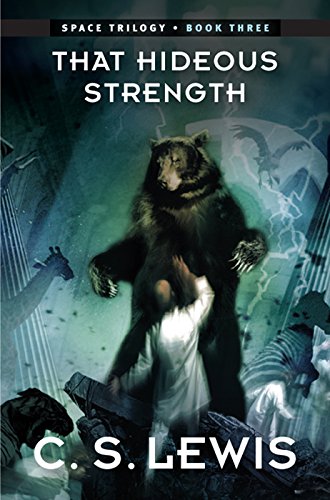 SUMMARY
SUMMARY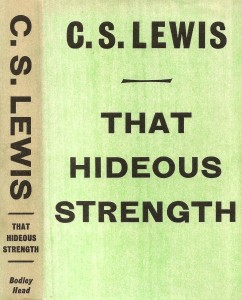 SUMMARY
SUMMARY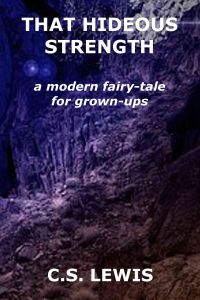 SUMMARY
SUMMARY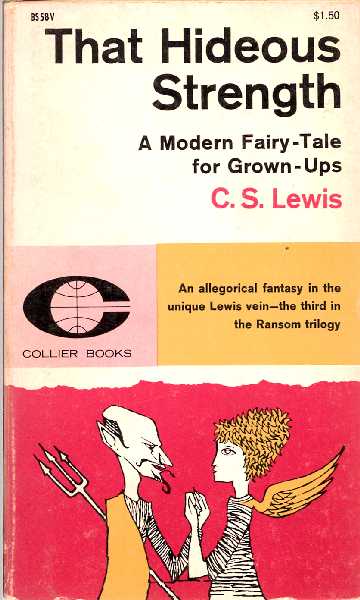 SUMMARY
SUMMARY SUMMARY
SUMMARY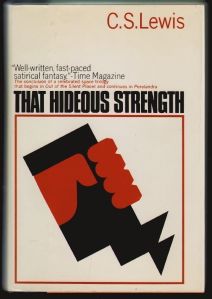 SUMMARY
SUMMARY